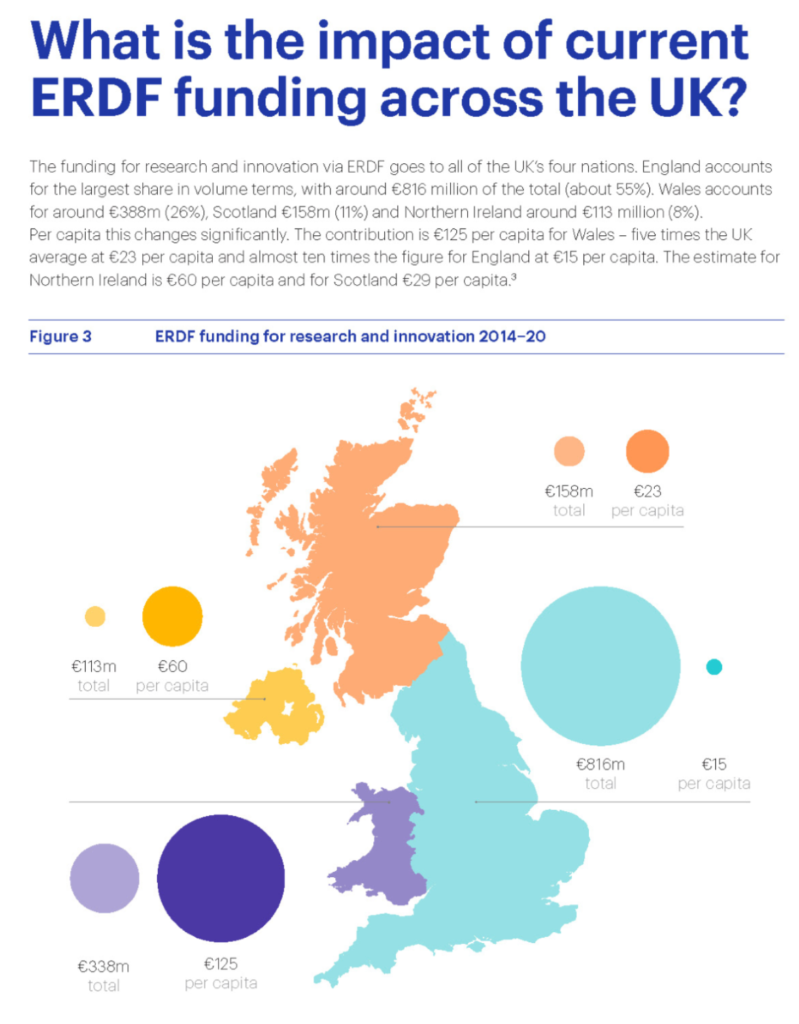European Structural and Investment Funds key to UK research and innovation

Proposed UK government research and innovation funding should, at the very least, equal the sum of existing expenditure from all sources following the UK’s withdrawal from the EU, a new report recommends.
The Learned Society of Wales, the British Academy the Royal Society of Edinburgh and the Royal Irish Academy have published an explainer, outlining the vital role that European Structural and Investment Funds (ESIF) play in supporting research and innovation throughout the UK.
European Structural and Investment Funds (ESIF) are the EU’s instrument for supporting economic development in the regions across the EU, with the aim of reducing inequalities and increasing cohesion.
The European Structural and Investment Funds – Contribution to UK research and innovation examines:
- how the European Structural and Investment Funds support UK research and innovation;
- the impact of current European Regional Development Funding;
- how the funding is allocated and administered;
- what the government’s proposed UK Shared Prosperity Fund could look like.
The €2.6 billion ESIF has provided to UK research and innovation in the last seven years, including UK co-financing, equates to around £375 million per annum in investment.
Benefit to Wales five times UK average
The €1.39 billion distributed through the European Regional Development Fund (ERDF) has had particular impact in devolved nations. The per capita contribution in Wales is €125 five times the UK average of €23 per capita.

Administration of the funds in Wales is devolved. Sêr Cymru, a multi-million pound funding programme to attract scientific talent into Welsh research posts, is an example of how ESIF funding has strengthened research programmes in Wales.
This funding then has considerable leveraging effects for attracting further funding from the EU and the UK.
The UK Government has announced that its UK Shared Prosperity Fund will replace ESIF funding, following the UK’s departure from the EU.
However, it is currently unclear whether the full amount of ESIF money will be matched by the new Shared Prosperity Fund, how this funding will be allocated and administered and whether it can replicate the complex interdependencies created by the ESIF.
